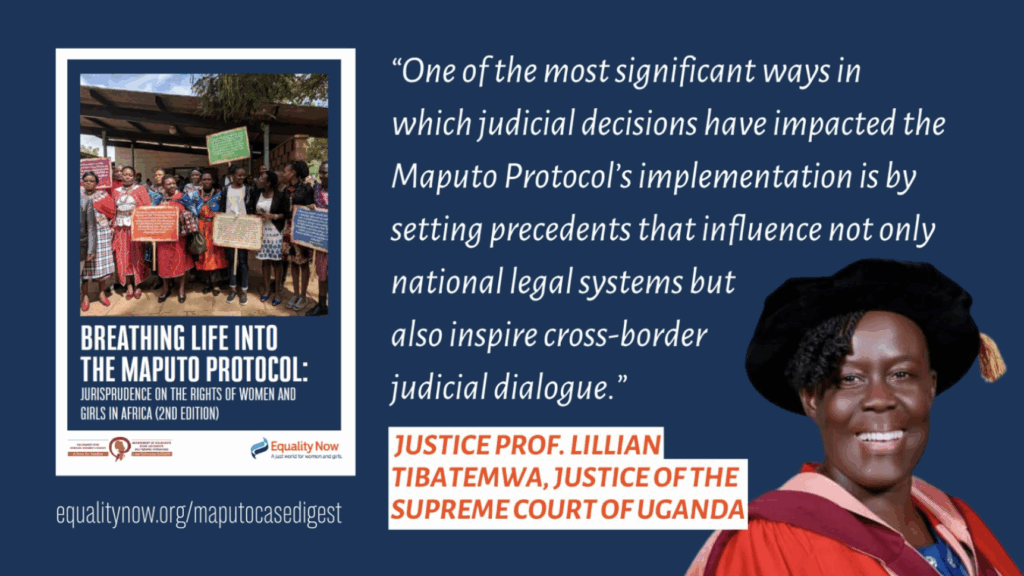This Case Digest is a resource for legal practitioners looking to apply the Maputo Protocol in strategic litigation in national and regional courts, to enhance the promotion and protection of the rights of women and girls in Africa. It follows the first edition of Breathing Life into the Maputo Protocol, released in 2018 on the 15th anniversary of the Protocol.
What’s inside the publication?
- Analysis of 26 judgments and decisions from courts across Africa and regional human rights mechanisms that referred to or implemented the Maputo Protocol between 2019 and 2024 provides an authoritative reference point for supporting legal action in similar cases in the future.
- The digest covers 11 countries: The Gambia, Kenya, Malawi, Mali, Namibia, Nigeria, Sierra Leone, South Africa, Tanzania, Uganda, and Zimbabwe.
- Some of the decisions highlight existing gaps in the interpretation and protection of women’s rights and provide the necessary evidence to support advocacy and other actions to address these gaps.
Key Takeaways and Recommendations
Strategic Use of the Maputo Protocol in Litigation:
The Digest illustrates how the Maputo Protocol has been increasingly referenced in national and regional court decisions to uphold women’s and girls’ rights. Between 2019 and 2024, courts across 11 African countries applied the Protocol in 26 landmark judgments, showing its growing importance in strategic litigation.Gaps in Implementation Remain Despite Progress:
While the Protocol has inspired progressive jurisprudence and legal reform, the report highlights significant gaps in both the interpretation and enforcement of women’s rights. These legal gaps hinder the full realization of protections promised under the Protocol, pointing to a continued need for judicial vigilance and policy reform.The Judiciary’s Critical Role in Advancing Women’s Rights:
National and regional courts are playing an increasingly vital role in addressing gender-based discrimination and harmful practices. The Digest reinforces the importance of judicial training and accountability mechanisms to ensure domestic laws align with international and regional women’s rights commitments.

